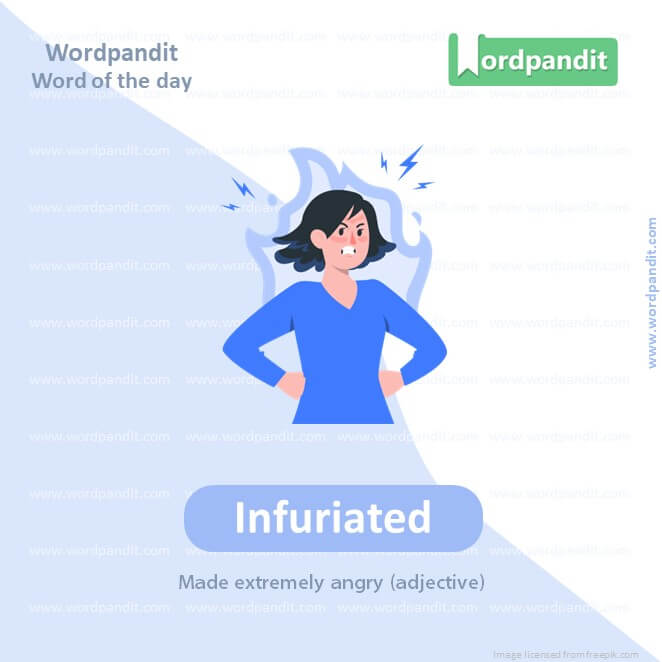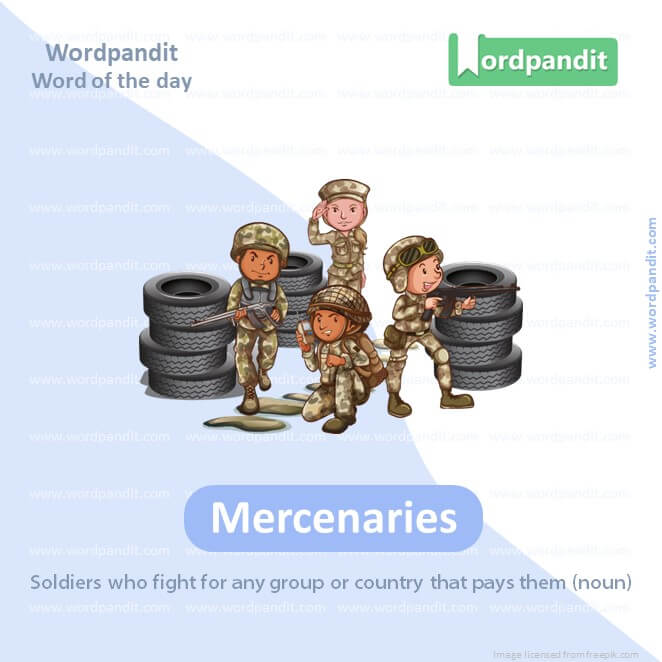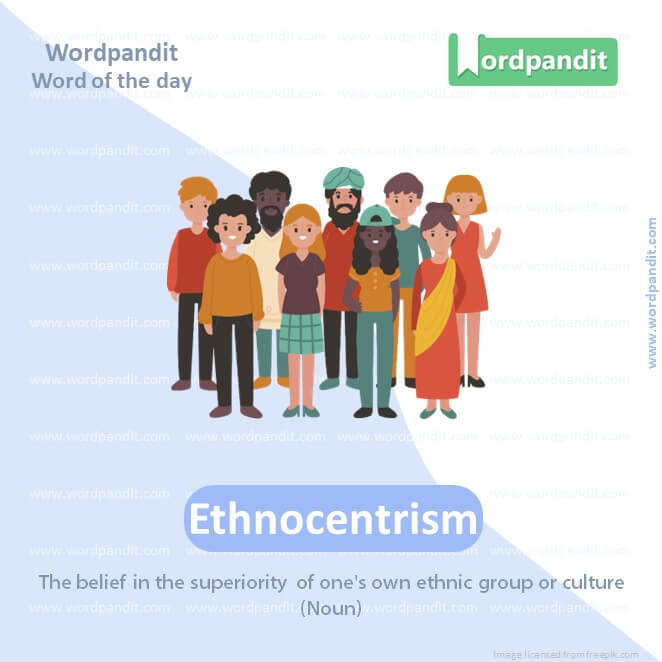Daily Vocabulary Words: Enhance Your Lexicon with Leading Newspapers & Publications
Welcome to the Daily Vocabulary section at Wordpandit!
Our mission is straightforward: to bring you essential vocabulary words featured in top newspapers and publications worldwide. By focusing on words you’ll encounter in renowned sources, we aim to help you enhance your vocabulary effectively and practically.
Our selection includes words from:
– The New York Times
– The Washington Post
– Scientific American
– BBC
– The Guardian
– Psychology Today
– Wall Street Journal
– The Economist
– The Hindu
– The Times of India
– The Economic Times
– Hindustan Times
– Live Mint
– The Indian Express
– And many more.
We are committed to your vocabulary development. Simply visit this section regularly and explore the daily posts. This is your go-to repository for commonly used words, providing significant practical benefits by familiarizing you with vocabulary from the leading publications listed above.
Make it a habit to visit our website daily and expand your lexicon with words from top newspapers and publications.

WORD-1: LIBERTY
CONTEXT: Samuel Johnson, a profound literary critic and essayist, wrote, “Poverty is a great enemy to human happiness; it certainly destroys liberty, and it makes some virtues impracticable, and others extremely difficult.” In sharp contrast, conventional measures of poverty in terms of income are limited and narrowly focused on scarcity of resources to eke out a bare subsistence. But there is much more to poverty than a bare subsistence, as emphasised by Johnson and others.
SOURCE: The Hindu
EXPLANATORY PARAGRAPH: Imagine you want to play in the park or choose your favorite ice cream flavor. Liberty means you get to make choices and do things that you like without anyone telling you what you can or cannot do. It’s like having the freedom to choose and enjoy things as you wish.
MEANING: The state of being free within society from oppressive restrictions (noun)
PRONUNCIATION: LIB-er-tee
SYNONYMS: Freedom, independence, autonomy, choice, self-determination, liberty
USAGE EXAMPLES:
1. Liberty allows people to express their opinions freely.
2. Everyone wants to have the liberty to make their own decisions.
3. The new law is designed to protect personal liberty.
4. She felt a great sense of liberty when she moved out on her own.

WORD-2: INFURIATED
CONTEXT: When Bihar chief minister Lalu Prasad Yadav disallowed his yatra from passing through the state, the kar sevaks were infuriated.
SOURCE: Hindustan times
EXPLANATORY PARAGRAPH: Imagine someone took your favorite toy without asking and broke it. You would feel very, very angry. That super strong feeling of anger is called being “infuriated.”
MEANING: Made extremely angry (adjective)
PRONUNCIATION: in-FYOOR-ee-ay-tid
SYNONYMS: enraged, furious, outraged, livid, fuming, irate, incensed
USAGE EXAMPLES:
1. The unfair decision infuriated the players.
2. She was infuriated when she found out someone had stolen her lunch.
3. The delay in the flight infuriated the passengers.
4. His rude comments left everyone infuriated.

WORD-3: MERCENARIES
CONTEXT: A group of mercenaries had arrived in the country by sea and had tried to overthrow the government.
SOURCE: Hindustan times
EXPLANATORY PARAGRAPH: Imagine someone who helps others only because they are getting paid for it, not because they want to be nice or help. These people are called “mercenaries.” They do things mostly for money, like soldiers who fight for a different country just to get paid.
MEANING: Soldiers who fight for any group or country that pays them (noun)
PRONUNCIATION: MUR-suh-nair-eez
SYNONYMS: hired soldiers, guns for hire, freelancers, profiteers, paid fighters, bounty hunters, soldiers of fortune
USAGE EXAMPLES:
1. The king hired mercenaries to help in the war.
2. Mercenaries are often motivated by money rather than loyalty.
3. He was accused of being mercenary, doing the work only for the paycheck.
4. Many mercenaries were involved in the conflict, fighting for whichever side paid more.
WORD-4: INTEMPERATE
CONTEXT: The intemperate statements made by some Maldives ministers last week have been condemned by other Maldivian politicians and even the current government.
SOURCE: Hindustan times
EXPLANATORY PARAGRAPH: Imagine someone who eats too many candies and can’t stop, even if it makes them sick. This person is being “intemperate.” It means not being able to control yourself or do things in moderation.
MEANING: Having or showing a lack of self-control, especially in eating, drinking, or behavior (adjective).
PRONUNCIATION: in-TEM-puh-rit
SYNONYMS: excessive, uncontrolled, unrestrained, immoderate, reckless, wild, indulgent
USAGE EXAMPLES:
1. His intemperate drinking caused problems in his life.
2. The actor was known for his intemperate outbursts on set.
3. An intemperate diet can lead to health issues.
4. The boss’s intemperate behavior scared the employees.
WORD-5: IMPERSONATING
CONTEXT: Social media platforms are also obligated under the IT Rules to take down misinformation and impersonating content.
SOURCE: Hindustan times
EXPLANATORY PARAGRAPH: Imagine you dress up and pretend to be your favorite superhero, trying to act just like them. When you pretend to be someone else, it’s called “impersonating.”
MEANING: Pretending to be someone else, especially to deceive others (verb).
PRONUNCIATION: im-PUR-suh-nay-ting
SYNONYMS: mimicking, imitating, posing as, pretending, copying, faking, masquerading
USAGE EXAMPLES:
1. The actor was great at impersonating famous celebrities.
2. She was caught impersonating a police officer.
3. He enjoys impersonating his friends for fun.
4. Impersonating someone on the phone can lead to trouble.
WORD-6: DISSEMINATION
CONTEXT: States like California and Texas have passed laws criminalising the dissemination of deepfake videos influencing elections, while Virginia penalises the distribution of non-consensual deepfake pornography.
SOURCE: Hindustan times
EXPLANATORY PARAGRAPH: Imagine you have a big bag of seeds and you throw them all over a garden to make flowers grow everywhere. “Dissemination” is like that, but with information. It means spreading information to lots of people.
MEANING: The act of spreading information or ideas widely (noun).
PRONUNCIATION: dih-SEM-uh-nay-shun
SYNONYMS: distribution, spreading, circulation, broadcast, dispersal, propagation, diffusion
USAGE EXAMPLES:
1. The dissemination of news was faster with the internet.
2. The organization focuses on the dissemination of health information.
3. Social media helps in the dissemination of ideas across the world.
4. Dissemination of false information can lead to misunderstandings.

WORD-7: TAPESTRY
CONTEXT: Generative AI has democratized music production. What once required expensive studio time and extensive technical know-how can now be achieved with a laptop and AI software. This accessibility has led to an explosion of creativity, enabling a diverse range of voices to contribute to the musical tapestry.
SOURCE: The Times of India
EXPLANATORY PARAGRAPH: A tapestry is like a big, beautiful picture made from many colorful pieces of cloth sewn together. It can also mean a complex mix of things that come together to create something interesting.
MEANING: A decorative woven cloth with designs or pictures, often used as a wall hanging (noun)
PRONUNCIATION: TAP-uh-stree
SYNONYMS: Fabric, artwork, mosaic, design, pattern, weave
USAGE EXAMPLES:
1. The museum displayed an ancient tapestry with beautiful designs.
2. The city’s cultural tapestry is made up of diverse traditions and people.
3. They wove a tapestry of memories from their travels.
4. The festival celebrated the colorful tapestry of local arts.
WORD-8: EXEMPTIONS
CONTEXT: The overall impact would be a mathematical function of the contributory share of the vehicles to the total pollution (varies usually between 30 per cent to 50 per cent) and the proportion of vehicles which stay off the road (<50 per cent depending on exemptions and degree of enforcement).
SOURCE: Indian express
EXPLANATORY PARAGRAPH: Imagine if everyone in class has to do homework, but the teacher tells you that you don’t have to do it. That special permission to skip something is called an “exemption.”
MEANING: The act of being free from an obligation or rule that others must follow (noun).
PRONUNCIATION: ig-ZEMP-shunz
SYNONYMS: exclusions, exceptions, waivers, immunities, pardons, privileges, dispensations
USAGE EXAMPLES:
1. Students with high grades received exemptions from the final exam.
2. Certain medical conditions allow exemptions from wearing a mask.
3. The law provides tax exemptions for small businesses.
4. He requested an exemption from jury duty due to his health.

WORD-9: ETHNOCENTRISM
CONTEXT: How much of a role did European Christian theology and ethnocentrism play in framing the purpose and methodology of the exercise.
SOURCE: Indian express
EXPLANATORY PARAGRAPH: Imagine thinking that your way of doing things, like the food you eat or the games you play, is better than anyone else’s way. This is called “ethnocentrism,” which means believing your own culture is the best and not understanding or respecting others.
MEANING: The belief in the superiority of one’s own ethnic group or culture (Noun)
PRONUNCIATION: eth-no-SEN-triz-um
SYNONYMS: cultural bias, nationalism, chauvinism, xenophobia, bigotry, racial pride, superiority complex
USAGE EXAMPLES:
1. Ethnocentrism can lead to misunderstandings between different cultures.
2. Traveling helps people overcome ethnocentrism by experiencing other ways of life.
3. The teacher discussed the dangers of ethnocentrism in class.
4. Ethnocentrism often prevents people from appreciating diversity.
WORD-10: ACCUMULATED
CONTEXT: The exception is the level of debt GOI and states have accumulated. Unless it’s brought down, we won’t make the most of the current opportunity.
SOURCE: Times of India
EXPLANATORY PARAGRAPH: Imagine collecting lots of toys over time and putting them in a big pile. When you collect things little by little until you have a lot, that’s called “accumulating.”
MEANING: Gradually gather or collect something over time (verb).
PRONUNCIATION: uh-KYOO-myoo-lay-tid
SYNONYMS: gathered, collected, amassed, hoarded, piled up, accumulated, stockpiled
USAGE EXAMPLES:
1. She accumulated a lot of books over the years.
2. The snow accumulated on the ground after hours of falling.
3. He accumulated enough points to win the game.
4. The company accumulated wealth through wise investments.
Vocabulary English Grammar
Delving into the vast universe of language learning, the ‘Vocabulary English Grammar’ acts as a beacon, illuminating the path to mastery. This synergy of words and rules forms the quintessential framework of the English language. However, understanding ‘Vocabulary English Grammar’ in-depth requires a fine-tuned strategy.
First and foremost, understanding ‘Vocabulary English Grammar’ goes beyond only remembering rules and words. It involves learning how a word functions in a grammatical context. To achieve this, resources like textbooks, online grammar guides, and interactive language learning apps prove to be very valuable.
However, embracing ‘Vocabulary English Grammar’ calls for consistent practice. Adopting thematic learning, where you concentrate on a specific grammatical concept and the vocabulary related to it, can be particularly effective. Reading material like articles and books, or engaging with podcasts and films can provide a real-world context to these concepts.
The key to mastering ‘Vocabulary English Grammar’ lies in constructing sentences. Instead of memorizing disconnected words and rules, start framing sentences. This active application significantly bolsters comprehension and provides practical insight into how grammatical rules govern the use of words.
To truly excel in ‘Vocabulary English Grammar’, it’s important to seek feedback. Participate in language exchange platforms or conversation clubs. These platforms provide an opportunity to apply what you’ve learned and obtain constructive feedback on your progress.
In essence, understanding ‘Vocabulary English Grammar’ is a step-by-step process that requires thoughtful learning, constant practice, application, and proactive feedback. By embedding these techniques into your language learning routine, you can confidently navigate ‘Vocabulary English Grammar’. Remember, mastering ‘Vocabulary English Grammar’ is not about perfection, but about progression and communication. Each rule learned, each word comprehended, brings you closer to the fluency in your English language journey.










